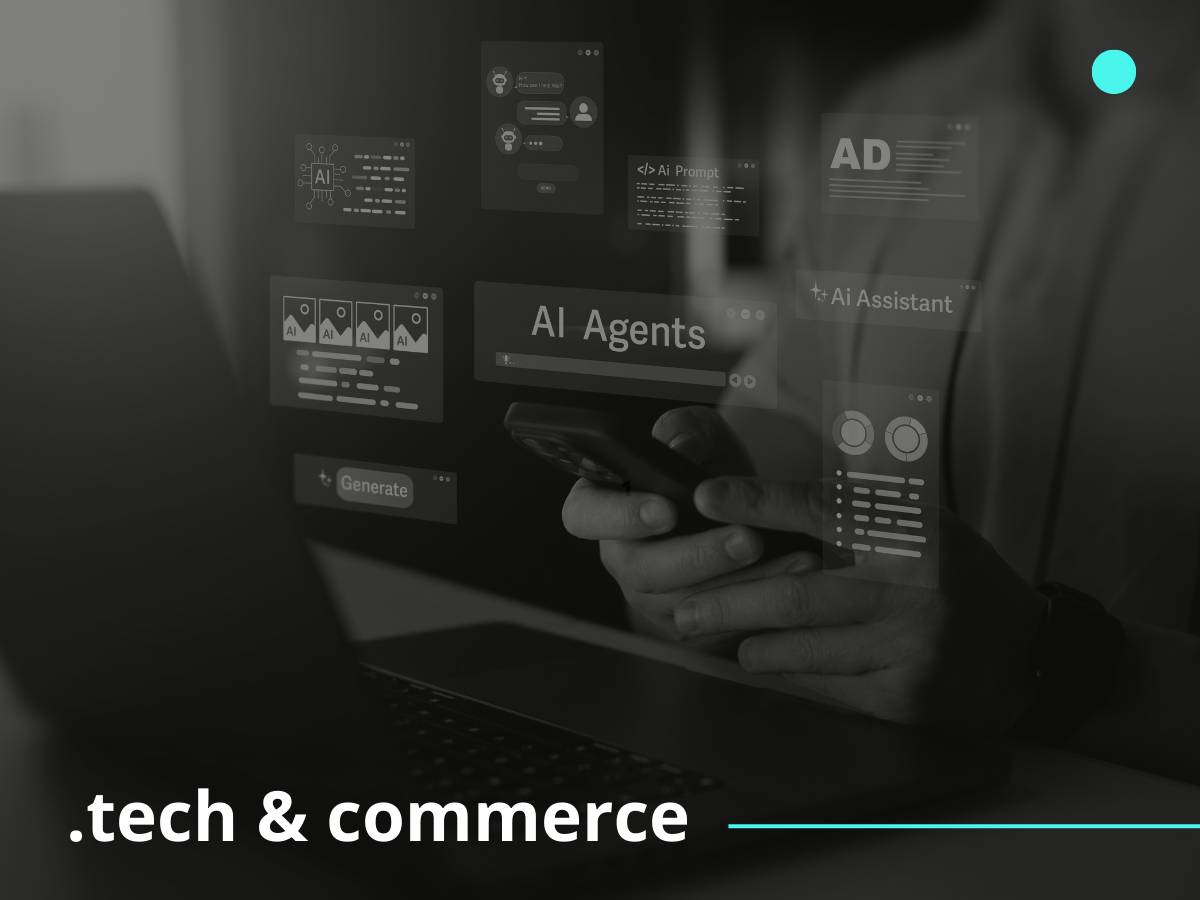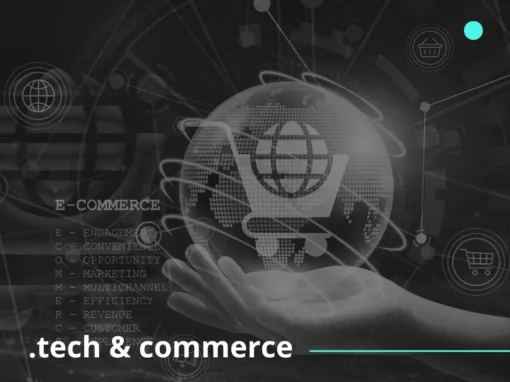It’s no surprise that Artificial Intelligence is dominating various sectors of the market. Today, it’s even difficult to find a scenario where it isn’t present—whether from a creative standpoint or as a tool for management and process optimization.
In e-commerce, where technology has always been a core element, numerous AI-driven resources are now constantly being developed. Even the way metrics are defined has evolved, thanks to the many possibilities offered by this technology.
This topic is essential for anyone working with marketing and technology. So keep reading to stay updated on this revolutionary advancement.
What are AI Agents?
AI agents are essentially technological resources that automate tasks. In practice, they are large systems capable of performing multiple tasks and making more informed decisions by considering context and other relevant variables at the time.
Their algorithms interpret data, learn from past experiences, and handle events without the need for human intervention, freeing up professionals for more creative and analytical tasks.
In e-commerce, these agents are present across several fronts. They appear in chatbot services that understand more complex questions, in product suggestions based on recent searches, and even in inventory management, predicting which products are likely to sell more in the coming week.
You can also use this technology to update marketing strategies, focusing on the personalized experience of small customer segments rather than sticking to broad, generalized actions.
And there’s more: with these systems running smoothly, the entire process becomes faster. Consumers notice it quickly — from clicking on a product to completing a purchase.
What Are the Main Benefits of Artificial Intelligence?
Since data is the main asset AI systems work with, their ability to analyze large volumes of information simultaneously is a key benefit. Everything happens almost in real time, leading, of course, to faster decision-making in management processes.
For e-commerce, this speed means being able to anticipate trends, adjust prices according to current demand, and even identify when a customer is about to abandon their cart. A major input for these correlations is cookies, which store various patterns of behavior from internet browsing and even app usage.
It’s also worth emphasizing the automation capability briefly mentioned earlier, as this is a determining factor for companies of all sizes and sectors. With automation, different stages of the sales funnel are fueled with minimal intervention, optimizing the use of time — an increasingly decisive factor in modern routines.
And let’s not forget the old issue of abandoned carts. With the right data, the system can detect when a customer is about to leave and act — whether by offering a discount or sending a message encouraging the customer to complete the purchase.
Which Companies Are Already Reaping the Benefits of AI?
You likely already know that many tech giants have been using AI for quite some time. Major companies like Apple, Meta, Google, and OpenAI even offer AI-based services to the general public.
What you might not know is that more traditional businesses are also benefiting from these tools in various ways. Here are three success stories:
Cosentino
Cosentino is a company well-known among architecture and design professionals, focused on manufacturing different types of materials such as coverings, countertops, facades, granite, and more.
Present in 114 countries, it uses AI primarily to forecast demand, helping to avoid the waste of raw materials. Beyond boosting profitability by anticipating periods of higher or lower sales, Cosentino also leverages AI to reduce its environmental impact, positioning itself as a green company.
eBay
eBay’s case is perhaps more relatable to the daily life of e-commerce professionals, as it’s a major marketplace player—directly competing with Amazon.
Their AI efforts are largely focused on data collection and improving overall user experience, along with personalized marketing initiatives similar to those mentioned earlier in this article. Additionally, eBay has recently made headlines by using AI to combat the sale of counterfeit products on its platform.
Johnson & Johnson
Johnson & Johnson has taken a different approach by forming a major partnership between its medical division and Nvidia — the hardware manufacturer best known for graphics cards — to improve surgical efficiency. Since Johnson & Johnson products are present in about 80% of operating rooms worldwide, the profit potential is enormous for both companies.
Naturally, major digital players like Amazon, Shein, and Alibaba are among the biggest investors in AI, using it for nearly everything—from search engine operations to virtual assistant services. Their commitment to innovation enables them to grow and become even more present in people’s lives.
What to Expect from AI in E-commerce by 2030?
The future of AI in e-commerce looks even more exciting. One major trend is the advancement of virtual assistants, which are expected to interact with customers in increasingly natural ways.
The goal is for these assistants to answer questions, make suggestions, and even finalize purchases without any human assistance. Online retailers can leverage these new interactions to strengthen brand recognition, for example.
Voice technology also promises to become a major research tool, with companies continuously improving their systems—like Apple’s Siri, Amazon’s Alexa, and Google Assistant.
At the end of 2024, Apple even launched the beta version of Apple Intelligence, a comprehensive user-focused system that significantly simplifies everyday tasks like photo adjustments, translations, and more, natively on their devices.
Finally, behavioral analysis is expected to become extremely precise. This opens the door for even more targeted marketing actions, resulting in significant improvements in conversion rates, reduced cart abandonment, and other important metrics.
How can companies prepare for this transformation?
It’s clear that these transformations are inevitable, and no company will go through them unaffected. The first step is to invest in staff training so that employees are prepared to handle the rapid and continuous wave of innovation. Fostering a culture that embraces technology is crucial for this.
Next, having state-of-the-art equipment for key company areas will make a big difference, especially since AI processes (when not cloud-based) often demand substantial processing power.
And don’t forget about transparency. Companies must be clear with consumers about how their data is used and must give them control over it. Trust is one of the pillars of success in the digital world, and building strong relationships with the audience should be a priority for every business.
We’ve reached the end of our article, and the key message we want to reinforce is that you cannot afford to ignore these changes. They are happening now, and those who fail to adapt will be left behind.
If you need help navigating this transformation, don’t hesitate to reach out to a company experienced in e-commerce technology.
Get in touch with us and discover how we can help you on your journey with Artificial Intelligence!




